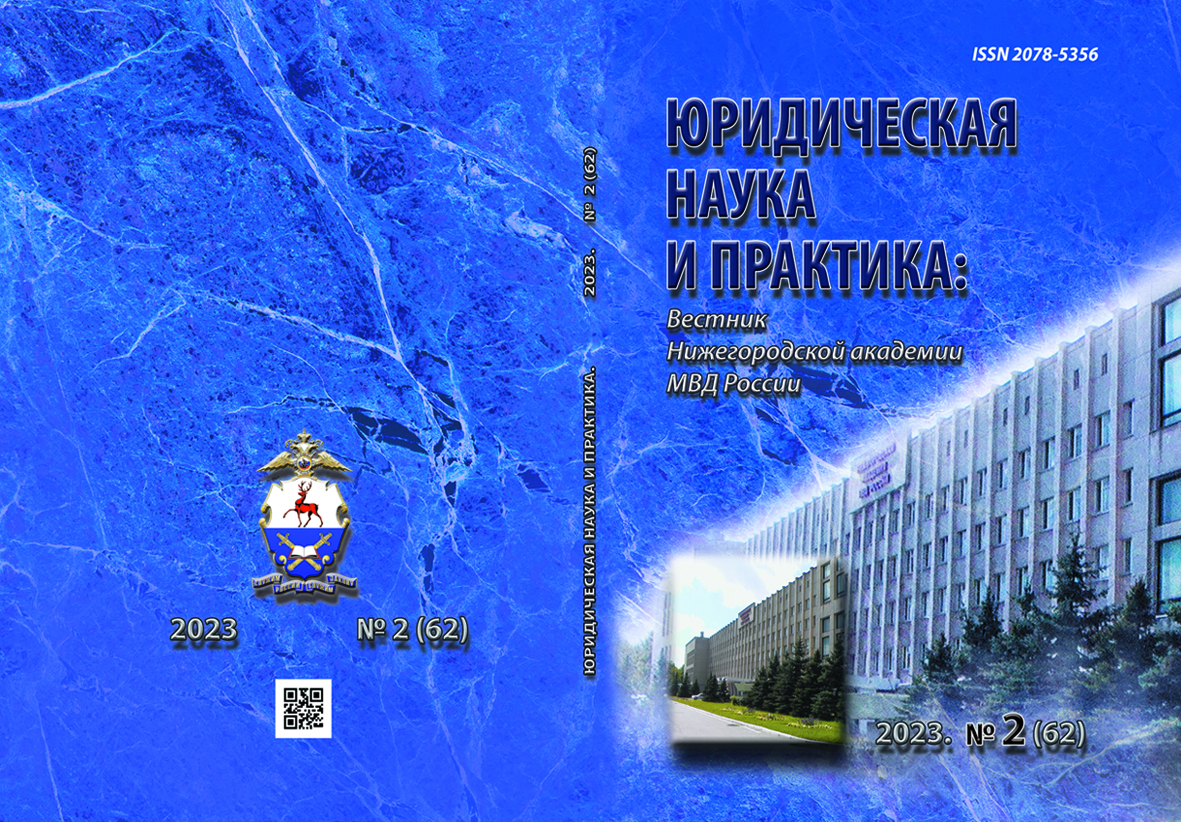Criminal and procedural cognition is intended to recreate a picture of an event that occurred in the past, by establishing a number of circumstances directly enshrined in the law. But the subjects of the activities to identify and investigate crimes do not initially interact directly with the objects that left this or that mapping, but transform the significant evidentiary information from their sources. Already then, by applying a number of criminal procedural procedures, an independent evidence appears in the case. This is how the process of transforming information into evidence takes place. In this case, as they accumulate, they act as arguments, constitute a body of evidence, the purpose of which is to justify the adoption of a legitimate, motivated, consistent criminal procedure decision.
evidence, proof, information, justification for a decision, body of evidence, system of evidence, truth
1. Abrosimov I. V. Actual issues of the admissibility and reliability of evidence in criminal proceedings. Dissertation… candidate of legal sciences. Moscow, 2007. 197 p. (In Russ.)
2. Verdict of the Bogorodsky city court of Nizhny Novgorod region on criminal case no. 1-57/2017. Official website of the Bogorodsky city court. URL: http://bogorodsky.nnov.sudrf.ru (accessed 09.01.2023). (In Russ.)
3. Verdict of the Koverninsky District Court of Nizhny Novgorod Oblast in criminal case no. 1-2/2016 (1-43/2015). Official website of the Kovern-insky District Court. URL: https://koverninsky.nnov.sudrf.ru (accessed 09.01.2023). (In Russ.)
4. Lubin A. F. Criminological bases of activity on investigation of crimes. Nizhny Novgorod, 2014. 201 p. (In Russ.)
5. Smolin A. V. Gnoseological approach to the content of evidence. Criminalistics: yesterday, today, tomorrow, 2020, no. 1 (13), pp. 138-144. (In Russ.)
6. Golunsky S. A. On Probability and Credibility in the Criminal Court. Problems of Criminal Policy. Moscow, 1937. Issue XI. (In Russ.)
7. Judicial reform: legal professionalism and problems of legal education: Discussions. Moscow, 1995. 384 p. (In Russ.)
8. Koldin V. Ia. Criminological analysis of information. Moscow, 2016. 528 p. (In Russ.)
9. Zaitseva S. A. Evaluation of evidence in the Russian criminal process. Dissertation… candidate of legal sciences. Saratov, 1999. 177 p. (In Russ.)
10. Kochkina M. A. Assessment of sufficiency of evidence at the stage of completion of preliminary investigation in a criminal case. Dissertation… candidate of legal sciences. Moscow, 2015. 197 p. (In Russ.)
11. Mireev B. A. Termination of preliminary investigation in the criminal process of the Russian Federation: issues of theory and practice. Dissertation… candidate of legal sciences. Vladimir, 2007. 240 p. (In Russ.)
12. Aubakirova A. A. Investigation and expert errors in the formation of internal conviction. Author’s abstract... doctor of legal sciences. Chelyabinsk, 2010. 512 p. (In Russ.)
13. Levchenko O. V. The system of means of cognitive activity in proving in criminal cases and its improvement. Dissertation… doctor of legal sciences. Astrakhan, 2004. 418 p. (In Russ.)
14. Zotov D. V. Limits of proving in criminal proceedings (study from the positions of reasonable formalism). Journal of Russian Law, 2016, no. 2 (230), pp. 105-117. (In Russ.)
15. Kostenko R. V. Evidence in criminal proceedings: conceptual approaches and prospects for legal regulation. Dissertation… doctor of legal sciences. Krasnodar, 2006. 421 p. (In Russ.)












